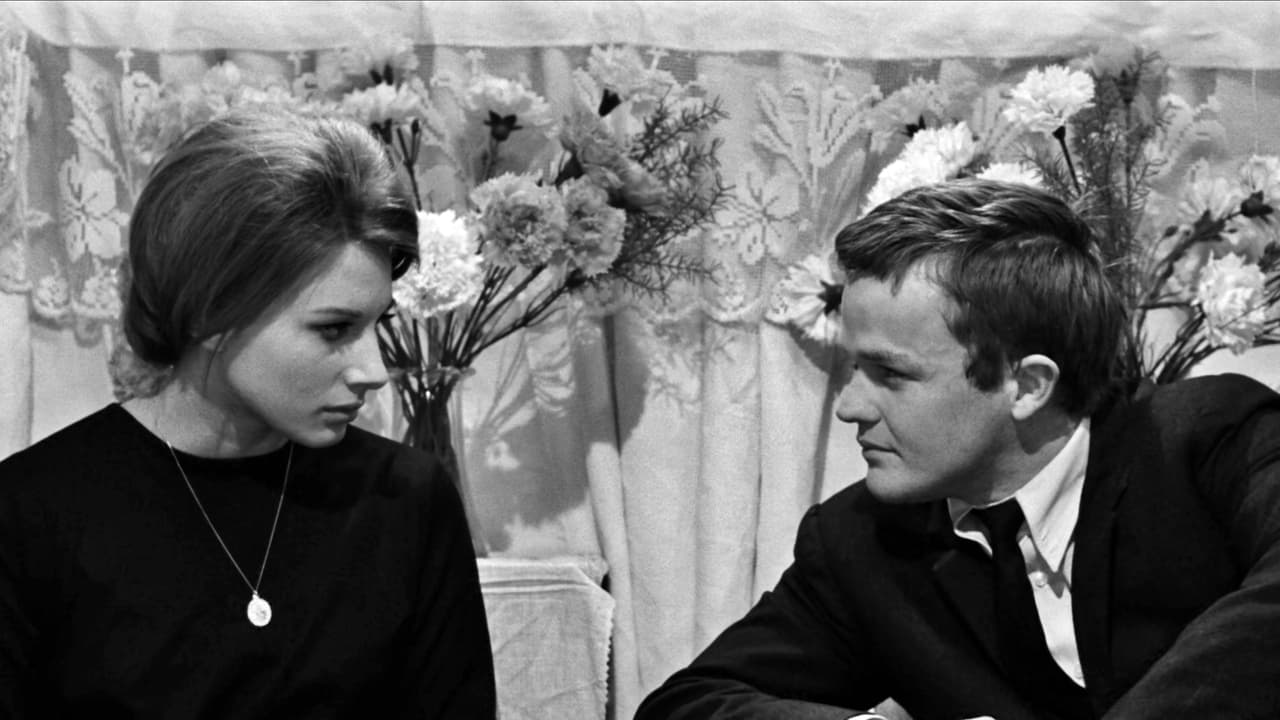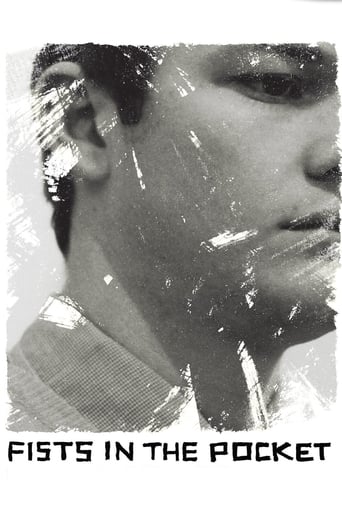

The title had led me to anticipate gritty realist drama; but the Italian cinema had by 1965 largely lost interest in those at the bottom of life's heap, and this film - which seems intended to be an extremely black comedy - is instead set amidst a household still struggling precariously to maintain it's grip on its former secure status.Fifty years ago all this must have seemed bracingly anarchic; but sophisticated audiences at that time still laughed indulgently at the scene in which hulking Gaston Modot hilariously strikes a bourgeois woman in 'L'Age d'Or' for accidentally spilling a drink down him (Bunuel himself wasn't particularly impressed with 'Fists in the Pocket'); and what could then be acclaimed as non-conformity increasingly looks to modern politically correct sensibilities like bullying born of boredom (especially since the anti-hero Alessandro seems still to subsist at a social strata at which he's spared the far more tedious burden of having to work for a living).As played by the slightly built, baby-faced Lou Castel, Allessandro lacks the physically intimidating presence of, say, David Warner as 'Morgan!' that would make him seem like a bully; but he still reserves some of his most brutal treatment for those least able to defend themselves, like a blind woman and a mentally handicapped epileptic.
... View MoreAn epileptic young man in a bourgeois family who,as soon we meet them ,seems not only to be living in the past,but to be already dead :they only get out of the house to go to the cemetery;the blind wodowed mother has delegated her authority to her elder son ,a nice handome man who "takes care" of his siblings :a girl who seems in love with her brother -she does want to see the prostitute her brother sleeps with,as though she would like to be her(and thus his) just for a while -, a half-wit ,and Sandro who passes for a ne'er do well to his clever brother's eyes:he is denied everything ,all his attempts to get out of this mausoleum fail (taking his driving licence , raising rabbits )and his restrained hatred knows no bounds .He's really got a chip on his shoulder ,and he becomes almost fascistic : one has to get rid of the improductive population - like in Rosselini's " Germania Anno Zero "in which a schoolteacher ,feeling nostalgic for the Führer, urges a little boy to kill his bedridden father-He does not realize he is in a cul de sac ;his big brother did stay with them because of the mother ,but as soon as she dies ,he wants to get married and to live his life .Sexually repressed -he refuses to dance with a girl who invites him (and not the other way around) and can only have sex with a prostitute,life is a blind alley for Sandro ;as for his big brother,he cannot stand his licit happiness ,he feels the approval of the others ,of the society ,still cooped up in this petty life.As he is not able to get rid of this powerful man who accepts the golden rules,he sacrifices a substitute ,his kid brother.Bellochio 's movie should be seen as a fable ,a transparent metaphor ,not really realistic ,with elements of melodrama (the sister's fate);Sandro is sick ,but so are people around them even though they are not aware that their old world ,through a slow process but inexorably , is collapsing .Epilepsy is just an alibi."Il Pugni In Tasca" took a rebel stand against the family;but Marco Bellochio's fight had only just begun: " Nel Name Del Padre " denounced the Church;in "Marcia Trionfale",at a time the militay service still existed in Italy (and almost everywhere in Europa),the army was hauled over the coals.
... View MoreWhen this film first appeared in the 1960s, the effect was so startlingly individual: there had never been a film as bold, as seemingly unhinged, yet as ruthlessly controlled, as this first feature by Marco Bellocchio. The wonderfully atmospheric black-and-white cinematography seemed to be developed from some dingy dream which dared to bring out into the open the most heinous family secrets, yet the utterly dispassionate fury which animated the most frenzied sequences was so freakish it was almost funny. This constant tension somehow allowed for a sneaky kind of compassion to enter the movie, so that the family dynamics, though extreme, seemed to come out of a common nightmare. FISTS IN THE POCKET remains an embattled cry for a new society, by focusing on the remnants of the diseased upper classes, yet this tale of sound and fury seems to have been made in the kind of frenzied reverie that is analogous to the stream-of-conscious jumble which William Faulkner used at the beginning of THE SOUND AND THE FURY, and to the same effect, i.e., to chart a family's disintegration as a mirror to the decaying grandeur of a dying society.
... View MoreMarco Bellocchio directs his first full-length film, and it's already a masterpiece, a milestone in the history of Italian cinema.This movie is all about contemporary uneasiness and family crisis in today's society (only, some two decades in advance). Every time I hear of family massacres on the news, I've got to think about problematic, disturbed Lou Castel deciding to get rid of his mother and younger brother for the benefit of the eldest, embodying not only a stage of criminality, but above all a wrong philosophy, a twisted point of view about life, a failed maturity. Ennio Morricone' score is just perfect, fully successful in his aim to highlight the dramatic potential of the story. Lou Castel has never acted like this, his grimacing and his usage of the dead moments are unforgettable. The frames of the mother's death are like an howl, they "send shivers down your spine". A must-see.
... View More